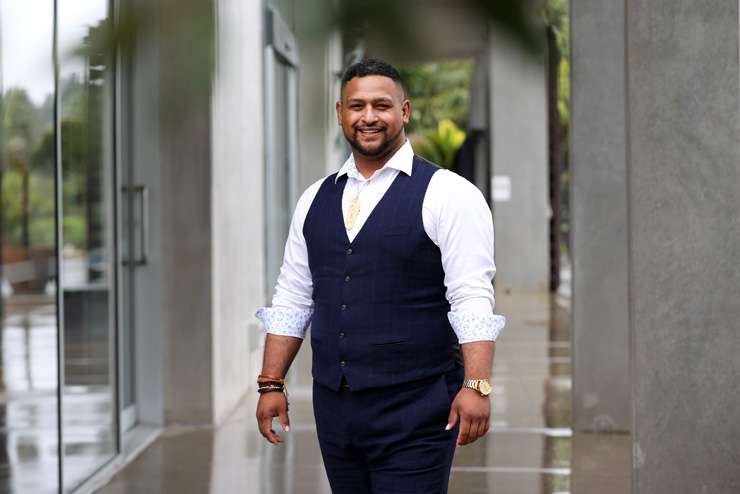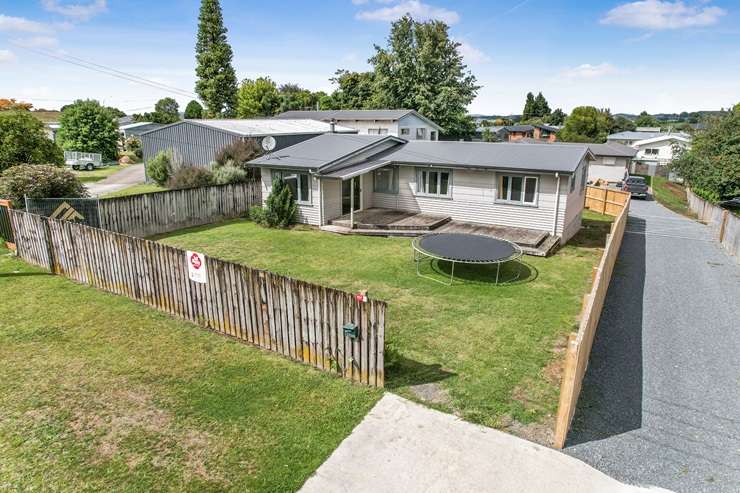Some of New Zealand’s first bilingual real estate signs have been rolled out across the country this month and it has left a lot of people asking why it hadn’t happened sooner.
Homeowners selling with Tall Poppy now have the choice of For Sale signs in te reo Māori and English.
Tall Poppy chief executive Michael Seymour said the signs were sent out as part of the company’s wider rebrand and he had been blown away by the response.
“It’s definitely caught us positively by surprise,” he told OneRoof.
Start your property search
“I think it’s just something that we should do, and we should make available. It’s just a part of being a good Kiwi basically.
“The thing is I’m reading messages from our guys saying that it’s a little bit sad that something like this is so attention-grabbing because you would think it would just be normal.
“I think we [the real estate industry] are a little backward when it comes to leading in terms of the social fabric.”
Read more:
- Vendor’s ‘bleeding’ stops after $1 reserve house ends up selling for $701,000
- Tony Alexander: Property developers ‘are staggering’ - cash woes raise fears of a collapse
- How much has your home made in the last year?
The company had engaged in a robust process and consulted with a Māori academic whose work was then peer-reviewed by two accredited translators, he said. However, he was open to taking further expert advice and making changes if it would further improve the signs.
Tall Poppy was making other changes to its branding, including replacing its trademark red colour for navy and providing agents with more environmentally friendly signs that featured 30% recycled materials.
Tall Poppy salesperson Jayden Matthews, who is based in Otaki, which is halfway between Wellington and Palmerston North, expected most of the signs he put up going forward to be in both English and te reo Māori due to community demand.
He already had five te reo signs up and was waiting on a second order.
“Being we’ve got the only Māori university here in the country to Te Wānanga, plus we are a very bilingual speaking town with three kura kaupapa or three Māori schools here. It’s certainly very rich in Māori culture here in Otaki that’s for sure.”

Harcourts Auckland agent Tama Emery has been using te reo Māori in his marketing. Photo / Fiona Goodall
He added: “To be honest there’s some reaction like ‘wow we can’t believe this hasn’t been done before’. As far as I’m aware we are the first company to introduce te reo on signs.
“Certainly, it’s been well received by the 20 or so vendors we’ve got at the moment.
“Once they are all on the ground, I would say 90% if not 100% – they would be the normal here I would have thought.”
Tall Poppy Waikato salesperson Shaun Smith put up his only For Sale sign in te reo on a property 6 Acacia Drive, in Kihikihi, the same day he received it
Vendor Ngaire Heke asked for one to be “slapped up” on their fence straight away and told OneRoof she wouldn’t be surprised if they became the norm in Kihikihi and Te Awamutu.
“I think it’s awesome. We are a Māori whanau, our kids go to kura kaupapa over in Putararu and I think it is awesome. I love that we are basically the first whanau to have this sign – I feel honoured and privileged.”

6 Acacia Avenue, in Kihikihi, Waipa, is on the market for $549,000 and is one of the first houses to have the new Tall Poppy signage in te reo. Photo / Supplied
Smith said it was great to be able to cater for all their vendors and the feedback so far had been great.
Te reo Māori lecturer at AUT and translator Hemi Kelly welcomed the move, saying the language should be heard, seen and used in every sector.
“It’s breakthrough moments like these, where we see the language being used in a new way, in a new space, that will inspire others to do the same thing. I support it wholeheartedly. It’s important, however, that it’s done with a lot of thought and consideration.”
However, anyone doing this should reach out to a certified translator registered with the Māori Language Commission or a Māori language consultant to ensure it’s done properly and the correct language is used, he added.
Awanui Te Huia, a te reo Māori expert at Victoria University, said it was great to see organisations in the private sector supporting te reo Māori.
“Having more reo Māori visible in our communities is a positive step towards the normalisation of our national language. Greater visibility of te reo contributes to the broader goal of language revitalisation. The availability of te reo Māori is beneficial for both Māori and non-Māori who are wanting to demonstrate their support for te reo.”
Harcourts Papakura real estate agent Tama Emery has been incorporating te reo Māori and tikanga Māori into his real estate work since starting in the industry three years ago. Te reo was visible in his marketing material and through most of his video content.
He said most of the feedback had been great, but he did get a few “left field” comments. “Just with some people inclined to tell me it’s a white industry and there’s no room for Māori – just a few of those comments and emails.”
Emery believed there was a place for Māori and te reo Māori in the industry whether it was through actions or how they utilised the beauty of te reo Māori. “Like the reo, like the pukana in a sold photo, there’s always a place for that side of Māori in real estate.”
“At the moment, I really only scratch the surface with te reo Māori in real estate, but there’s very few people [who] go to the extent that I do in terms of utilising te reo Māori.”
- Click here to find properties for sale











































































